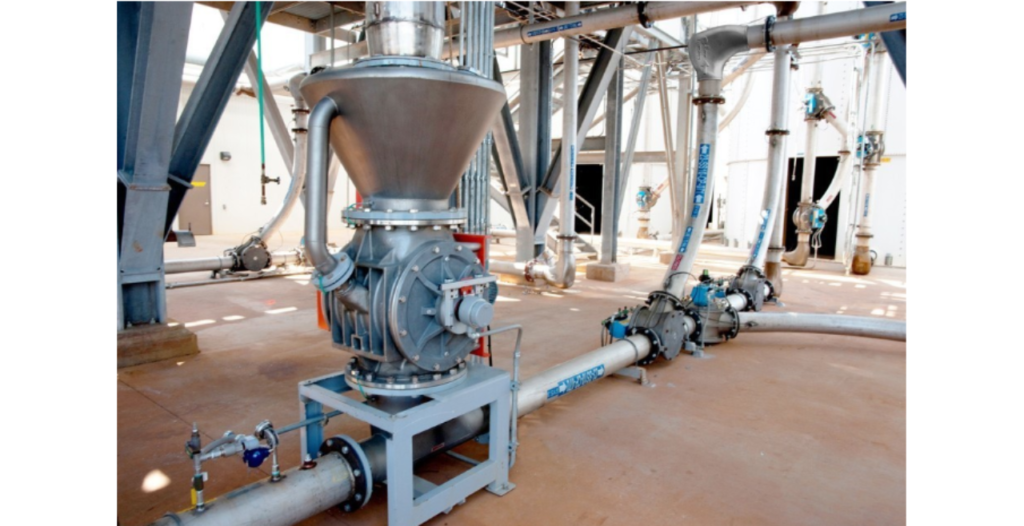Rotary Air Valve (RAL)
Sanitary Type RAL
| Sanitary Rotary Valve, also known as a hygienic rotary valve, is a specialized rotary valve designed for use in industries with strict hygiene and sanitary requirements, such as the food, pharmaceutical, and chemical industries. Its working principle is similar to that of a standard rotary valve: |
| Inlet and Outlet Ports: The valve has an inlet and an outlet, allowing for the controlled flow of bulk materials. |
| Rotor with Pockets: Inside the valve, there is a rotating rotor with pockets or chambers. The rotor continuously rotates, trapping and carrying bulk material from the inlet toward the outlet. |
| Material Discharge: As each pocket reaches the outlet, it releases the material into the downstream equipment or process. |
| Airtight Seal: The Sanitary Rotary Valve is designed to maintain an airtight seal between the inlet and outlet. This sealing prevents air leakage, maintains system pressure, and minimizes contamination. |

| Advantages: |
| Hygienic Design: Specifically designed to meet stringent sanitary and hygiene standards, including easy cleaning and preventing material buildup. |
| Airtight Seal: Maintains an airtight seal between the inlet and outlet, preventing air leakage and preserving product integrity. |
| Material Flow Control: Provides precise control over the flow of bulk materials, allowing for regulated and contamination-free material transfer. |
| Continuous Operation: Capable of continuous operation, ensuring a steady and controlled material flow. |
| Disadvantages: |
| Maintenance: Like other rotary valves, Sanitary Rotary Valves require regular maintenance to ensure proper functioning, including inspection of rotor vanes, seals, and bearings. |
| Cost: Sanitary Rotary Valves are often more expensive than standard rotary valves due to their specialized design and materials. |

| Applications: |
| Sanitary Rotary Valves are crucial in industries and applications where hygiene and sanitary standards are of paramount importance, including: |
| Food Processing: Used in the food industry to handle ingredients, powders, and granules in a sanitary and contamination-free manner. |
| Pharmaceuticals: Employed in pharmaceutical manufacturing to ensure precise and sterile material transfer. |
| Chemicals: In chemical processing where hygiene and product integrity are essential. |
| Cosmetics: Used for handling cosmetic powders and ingredients. |
| Beverage Production: In the production of beverages like dairy products and beverages where sanitation is critical. |

Summary:
A Sanitary Rotary Valve is a specialized rotary valve designed for industries with strict hygiene and sanitary requirements. It operates on the same principles as a standard rotary valve but is engineered to meet stringent standards for cleanliness and contamination prevention.
The valve provides precise material flow control, maintains an airtight seal, and operates continuously while ensuring the highest levels of hygiene and product integrity.
Despite being more expensive than standard valves, Sanitary Rotary Valves are essential in applications where hygiene and sanitary standards are paramount. Proper selection and maintenance are crucial for their effectiveness in maintaining product purity and quality.


 Sales & Marketing:
Sales & Marketing:  Service Supports:
Service Supports:  Website:
Website: 